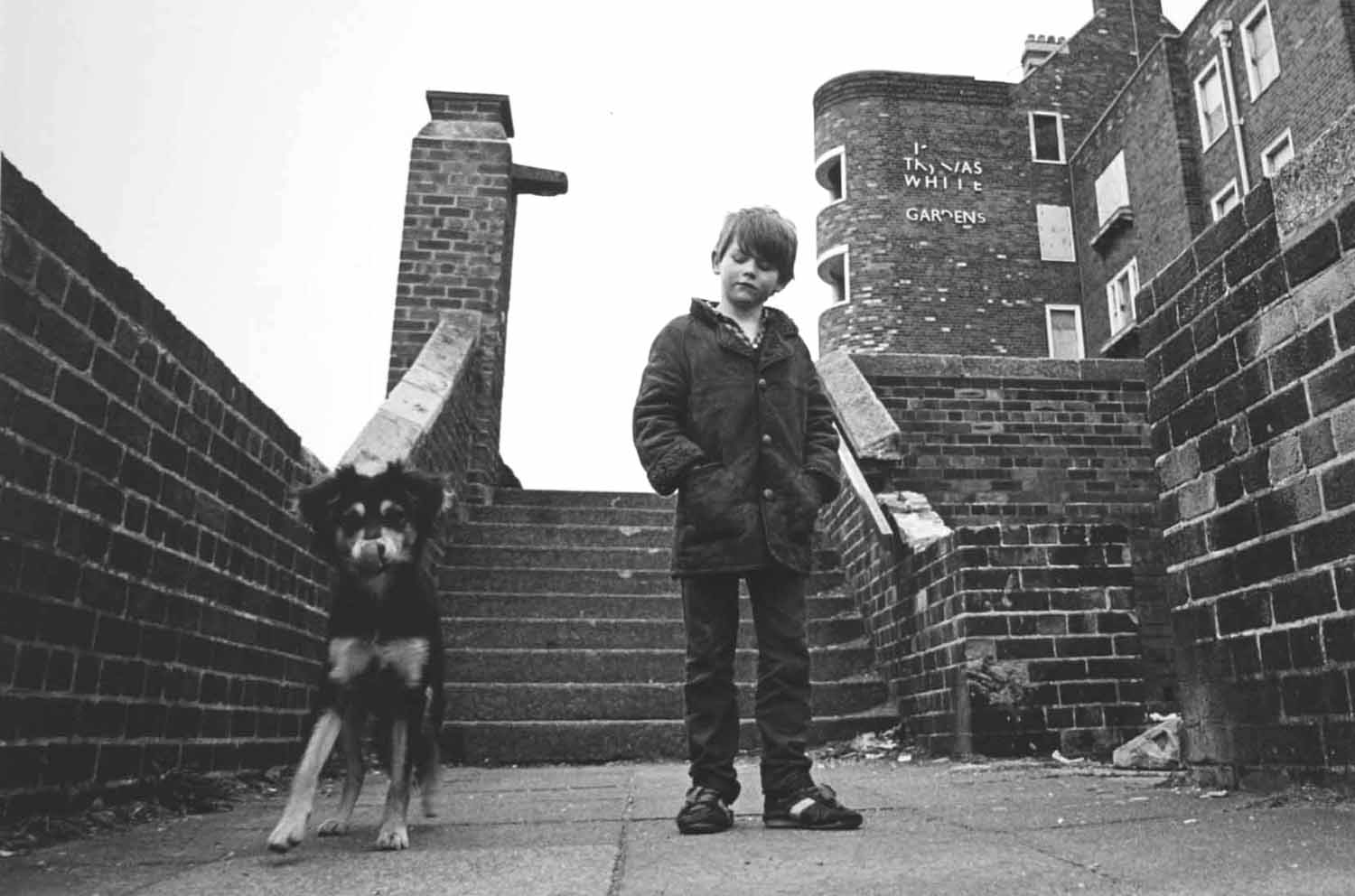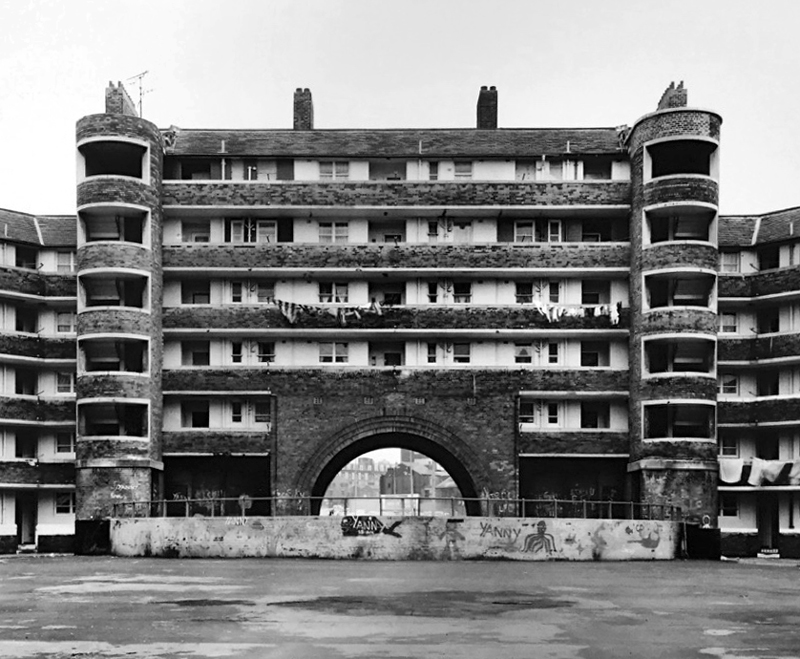

Gardens of Stone
Dan Warner is a 3rd year PhD Researcher and Teacher at the University of Liverpool. Having completed a B.A. in History and an M.A. in Cultural History, his thesis utilises social documentary photography to explore working class culture in British inner cities during the 1970s. Dan completed a placement at Open Eye Gallery in 2015, composing and delivering the Spoken Words and Photographs event during which images from the Gallery’s archive were matched with local oral histories. In the following series of blogs, Dan explores the research conducted, including representations of life in British inner cities at the time and the uses of urban street photography as an historical source. In this blog, Dan explores how John’s photography highlights how local children and adolescents made the most of a rapidly changing and decaying landscape.
—
A disappearing point of reference in the landscape of inner Liverpool at this time were the interwar tenements, and many shots in the archive deal with their increasingly dilapidated state. A good example of this can be found here, in a Stoddart picture of a boy and his dog taken outside Sir Thomas White Gardens, or “Tommy Whites”, situated by St Domingo Road.
Built much earlier than the post-war high-rises, strong communities had formed around these squares. However, by the early 1980s more and more of these tenements were earmarked for demolition and many communities began to gradually erode. A similar block was Gerard Gardens, seen in this shot taken by John McDonald in 1979. Paul grew up in Gerard Crescent, a tenement that ran down the spine of Gerard Gardens. His family moved there in 1960 and Paul had fond memories of his time there. After talking to work colleagues upon getting his first job in 1979, Paul remembers their alarm when he told them where he was from.
“They’d asked me so I said Gerard Gardens and they’d take a step back. They’d drive past and see the kids playing in the archway and think, “I’d hate to live there. Look at it, it looks horrible.” I can see how coming from an outsider’s perspective you’d be intimidated because when you walked through the archway you were surrounded on all sides. There wasn’t a lot of light that got through. But you speak to most of the people that lived there and it’s a different story. It was a great community and everyone looked out for each other. We didn’t have much, but because of that we made more of an effort to be social. There was no keeping up with the Jones’s because the Jones’s never lived there.”
When his mother was finally moved out before the blocks were pulled down in the late eighties and moved into a more conventional house, Paul described how much she missed her flat.
“The new house was lovely, it was a little two bedroom with a front and back garden. She hated it. She said, “You go in, you shut your door and you don’t see anyone.” Everyone got a little more insular, they got a bit more house-proud. The airs and graces as me ma used to say. There was none of that in the squares.”
Though difficult to imagine looking at this ghostly picture, the interwar gardens, which ironically had very little greenery, were the social hubs within lively and active communities.
“When we’d be in school or in work, me ma would just stand out on the landing. There’d always be someone walking along, and they’d stop and have a chat and they’d be there for up to an hour. That was the difference. When she had a front garden it became a barrier. People looked at the openness of the flats and thought it was a bad thing. But back then, it wasn’t. It was part of the community.”
Indeed, it was these open and communal spaces that formed the very heart of the community. And for the children growing up in these blocks, that was no different.
“We always used to play out. We didn’t have no space in the house. The landing was great for skateboarding because it was dead flat. Or we’d have games of football in the main square, and you’re talking about twenty a side here. No offside rules or nothing like that. What would happen was a game of footie would start as a four a side and then someone would run down and before you knew it everyone was there. There was a fella who used to live next-door but one to us, lovely fella, and he used to have a drink and that. He’d come in after being on the ale and we’d all be playing footie, and he’d be leaning on the landing shouting instructions out to the kids. “Pass it to him! Ger’ it out wide!””

